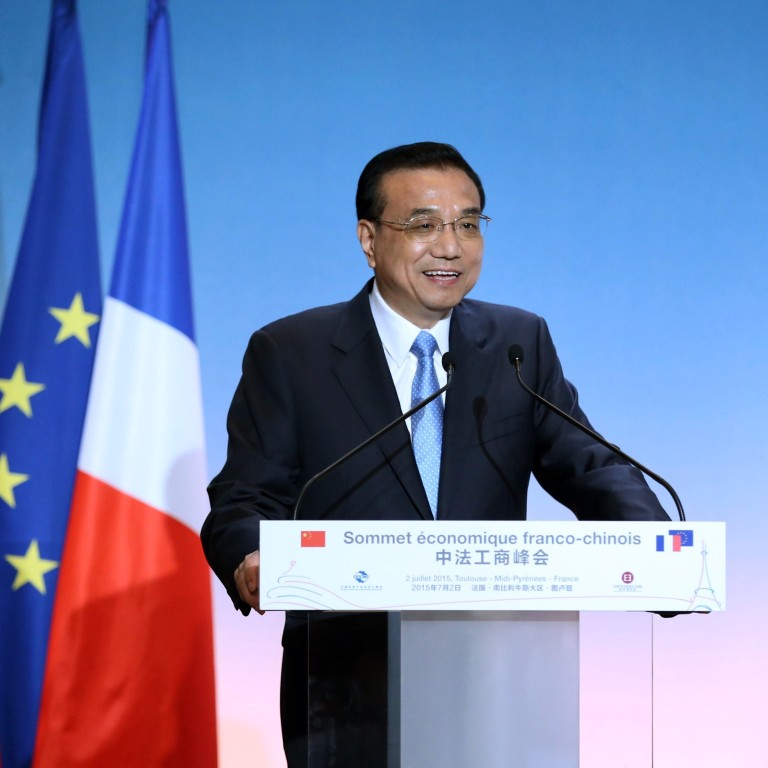
Global index provider MSCI joins the list of those blamed for China market crash
Index provider blamed after margin finance, short selling and suspicious foreign banks
As Beijing fights its worst stock market crisis in years, the two most important questions facing leaders - including Premier Li Keqiang - must be where to find the money to boost the market and what was the real cause of the crash.
The first answer may be an easy one. The central bank is now the de facto top provider of unlimited liquidity support to local brokerages to stabilise the market. Hundreds of billions of yuan have been poured into the market. As a result, investors have seen some recovery after the 25 per cent fall in the benchmark Shanghai index over the past four weeks.
The answer to the second question may be even more important than the first as Li must want to prevent the next crisis. Since the current market woes began late last month, securities regulators - together with some state media that have used the crisis to promote nationalism - have blamed out-of-control margin finance, "malicious short sellers" and some "suspicious foreign banks".
Last week, a blog written by an unnamed trader at a government fund revealed one more "excuse", which apparently the government now does truly believe. Who was at fault? Global index provider MSCI.
On June 9, MSCI declined to include Chinese stocks in a key index for global stock markets this year.
It was a huge disappointment for Chinese investors, and clearly the government too. Beijing thought its chances had been good.
Why is their inclusion so important? The MSCI Emerging Markets Index is tracked widely by global asset managers. Having Chinese stocks make their appearance would have been a milestone for the world's second-biggest economy, as the decision could attract an estimated US$400 billion into the mainland's stock markets.
The blog entry, which spread quickly among fund managers via mainland social media network WeChat before the government removed the article, said the securities regulator originally hoped including Chinese stocks in the MSCI could help the mainland stock market rise to new heights, perhaps even breaking the 2007 high of 6,124.04 points.
It didn't happen and we have all seen the result.
As influential investor and long-time China watcher Patrick Chovanec said on his Twitter feed: "MSCI really dodged a bullet, didn't it? How many fund managers would be crying that they forced them to buy China at its peak?"
Well, shall we also blame the securities regulator for missing all the early signals about a market crash and for being too self-confident, or even a bit greedy in allowing the market to fly so high on the MSCI hope? That may be one of the more realistic causes for this crisis in my view.

